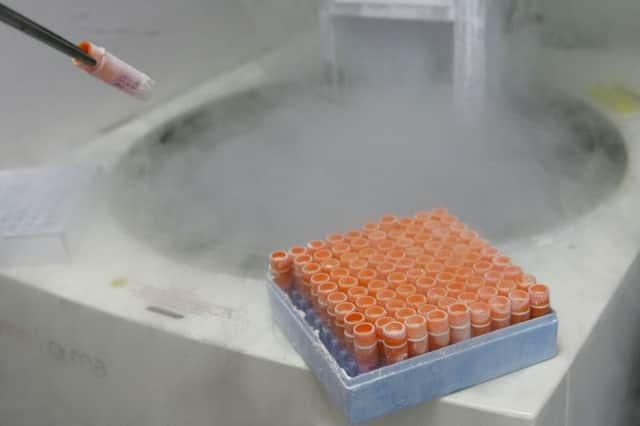New therapy could halt symptoms in long-term MS patients


Scientists from Ottawa University, in Canada, used very strong chemotherapy to destroy a patient’s immune system before a stem cell transplant, which prevented relapse and the development of brain lesions in 23 out of a study of 24 MS patients.
This is the first treatment to produce such disease control or neurological recovery, but it carries high risks as one patient died of liver failure.
Advertisement
Hide AdAdvertisement
Hide AdScotland has one of the highest incidences of multiple sclerosis in the world, with more than 11,000 people with the condition that occurs when the immune system attacks the body.
Current treatments use chemotherapy to suppress the immune system while bone marrow stem cells are harvested, which are then reintroduced into the blood stream.
Dr Mark S Freedman, one of the lead authors, said: “Since this is an aggressive treatment, the potential benefits should be weighed against the risks of serious complications associated with (the treatment) aHSCT, and this treatment should only be offered in specialist centres experienced both in multiple sclerosis treatment and stem cell therapy, or as part of a clinical trial.”
Beforehand these patients relapsed each year, but after treatment they had no relapses in 13 years.
Expert hailed the findings but warned the treatment was too risky for widespread use.
Prof Siddharthan Chandran, MacDonald Professor of Neurology at Edinburgh University, said: “This is an important and carefully conducted proof of concept study that demonstrates that powerful chemotherapy based treatment for a selected subset of MS patients with very aggressive disease is effective in preventing further disabling relapses and, in a proportion, appears to render them effectively disease free.
“However, the treatment regime has substantial risks and safety concerns that underlines the need for future studies with a larger sample size, control group and ideally identification of predictive markers to allow targeting of this treatment to those MS patients at greatest risk of rapid and severe decline.”
Dr Emma Gray, head of clinical trials at the MS Society, said: “This treatment does offer hope, but it’s also an aggressive procedure that comes with substantial risks and requires specialist aftercare.”